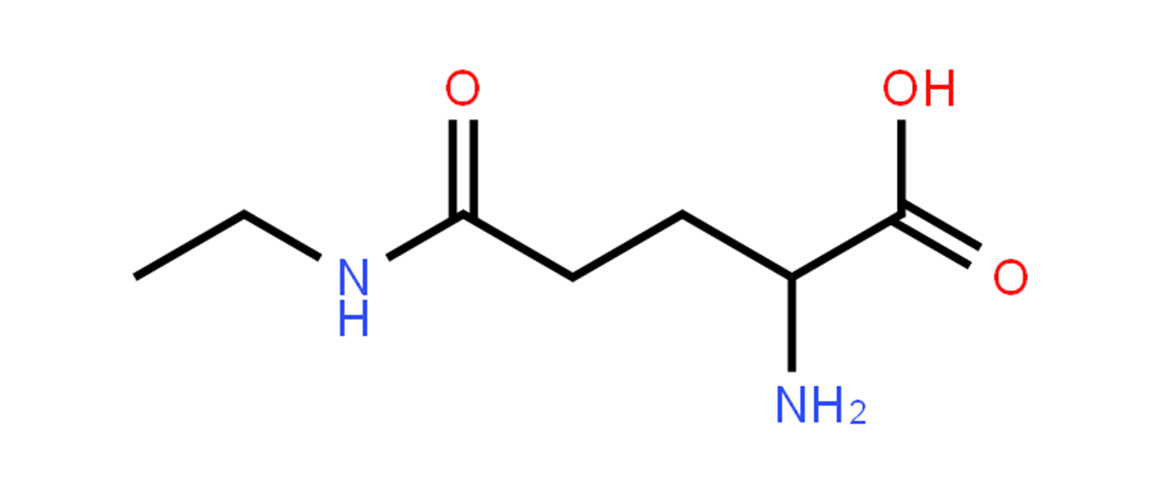L-theanine is an amino acid that is commonly found in tea leaves, especially in green tea (Camellia sinensis). It is known for its potential relaxation and stress-reducing effects. Here is some information about its chemical structure and physical properties:
Chemical Structure of L-Theanine:
- L-theanine, also known as theanine or γ-glutamylethylamide, is an amino acid analogue of glutamine and glutamate.
- Its chemical structure is as follows:

- The “L” in L-theanine refers to its stereochemistry, indicating the naturally occurring form.
Physical Properties of L-Theanine:
- Appearance: L-theanine is typically a white, crystalline powder or fine, needle-like crystals.
- Solubility: L-theanine is soluble in water, which makes it easy to extract from tea leaves when making tea.
- Melting Point: L-theanine has a melting point in the range of approximately 202-215°C (396-419°F).
- Taste: L-theanine has a slightly sweet, umami taste, which contributes to the flavor profile of tea.
- Molecular Weight: The molecular weight of L-theanine is approximately 174.2 g/mol.
- pKa: The pKa (acid dissociation constant) of L-theanine is around 2.6 and 5.0, which means it can exist in different ionization states depending on the pH of its environment.
- Stability: L-theanine is stable under normal storage conditions and does not readily degrade.
Biological Activity of L-Theanine:
- L-theanine is believed to have several beneficial effects on the body, including promoting relaxation without sedation, improving cognitive function, and potentially reducing the perception of stress and anxiety.
- It is thought to work by increasing the production of certain neurotransmitters, such as gamma-aminobutyric acid (GABA), which has calming effects on the brain.
Please note that while L-theanine is generally considered safe and well-tolerated when consumed in moderate amounts, individual responses to supplements and dietary compounds can vary, and it’s always a good idea to consult with a healthcare professional before starting any new dietary or supplement regimen, especially if you have any pre-existing medical conditions or are taking medications.
